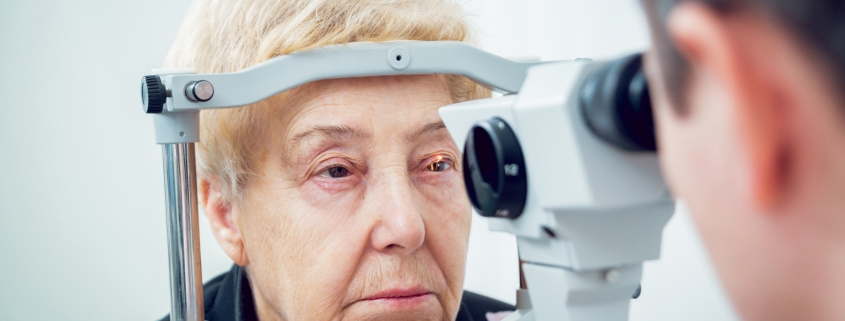How Does a Cataract Affect Eyesight?
A cataract is a relatively common condition, but it’s not unusual for it to be mixed up with disorders like glaucoma or macular degeneration. Cataracts affect the lens of the eye and despite their proliferation, there’s still a lot that experts don’t understand about them. See how cataracts interfere with the signals our brains receive and how we perceive color.
From Crisp to Cloudy
Crisp to cloudy is essentially how you can think of a cataract affecting eyesight. When you’re young, the lens is clean, allowing you to see details and distinguish the color tones of nearly everything you see. It’s unclear what causes cataracts, but it’s been linked to anything from genetic history to smoking.
By the time people are in their 80s, more than half will have developed cataracts in one or both eyes. These are caused when the natural lens begins to cloud over and blur. With cataracts, the lens of the eye can no longer concentrate the light source in the retina due to protein loss. You might experience anything from tinted colors to poor night vision to double vision. Colors can also look faded, and light can sometimes appear as bursts (similar to a blinding bright lamp in the middle of darkness).
How Cataracts Are Treated
There are eyewear solutions for cataracts, which may include anything from a magnifying lens to antiglare sunglasses. However, these can only delay the onset of cataracts. The most common way to treat this condition is to perform cataract surgery on the eye. While no procedure is without risk, it’s one of the most routine operations a doctor can do. Usually lasting less than a half-hour, the doctor will make a very tiny cut into the lens of your eye and use a probe to break up the cloudy lens. From there, your lens can be removed and an artificial one can take its place.
The severity of cataracts may start off as barely noticeable, but it’s important to recognize the problem in its earliest stages before it compromises your well-being. Cataract surgery will help more than 90% of people have clear vision, which will inevitably allow them to maintain their independence and ensure their safety.







Leave a Reply
Want to join the discussion?Feel free to contribute!